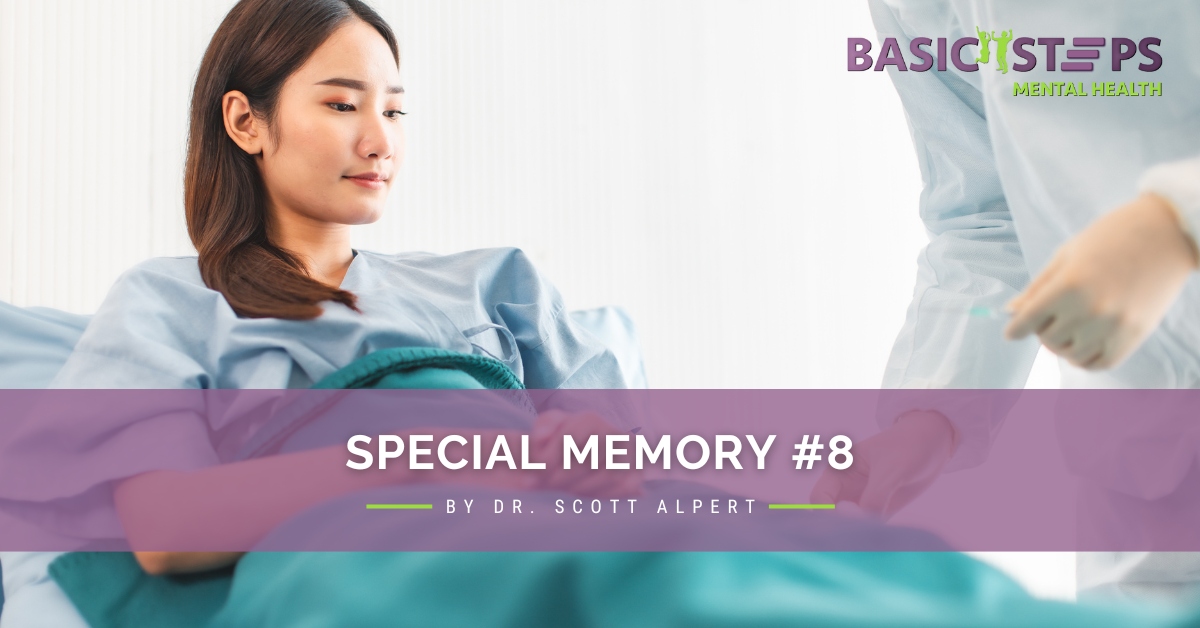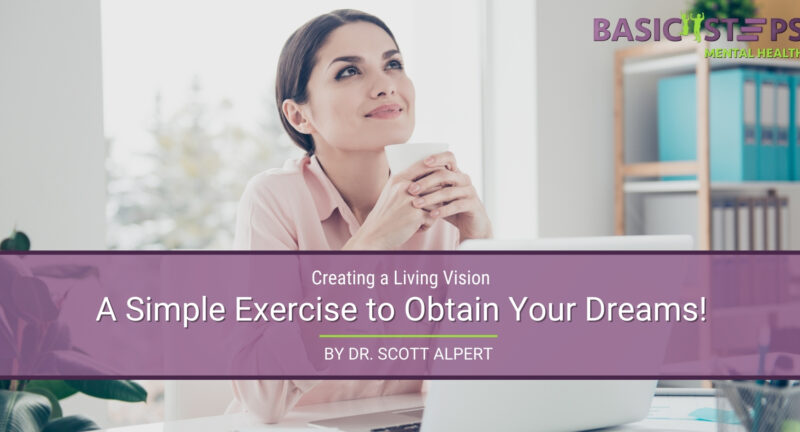
Special Memory #8
There are some interesting experiences as a therapist, which have aided me in being the best therapist I can be. When life and death situations presented themselves in my practice, I wasn’t that prepared to deal with them.
As a college intern, my first placement was at Tarzana Treatment Center, a facility just north of Los Angeles. My position was counseling individuals suffering from HIV and AIDS. When somebody new came onto the unit, my job was to give them an assessment and then go over the information with my supervisor.
A man in his 60s came onto the unit suffering from AIDS. He was showing a lot of symptoms and was obviously at the end of his life. He needed to go through our detoxification before entering the regular program on the unit, therefore I interviewed him in his hospital bed. The man looked worn out from years of addiction, living on the street, and supporting a habit that cost him upwards of $1,000 a week! In AA they tried to claim people were powerless but his supporting this big of a habit, made him powerful in my book.
During our interview, he told me this was his last treatment stay because after he was discharged he planned to buy a whole lot of pills, cocaine, hard alcohol, get a bunch of hookers and kill himself through partying.
I was shocked! Nobody had ever confessed they wanted to commit suicide to me before and with such a strong plan and desire, I immediately jumped into action.
I searched for and found my supervisor and told him everything the man told me. And, with a nod, Dr. Noah followed me back to the detox unit to confirm this.
Almost verbatim, the man reported wanting to get wasted, screw hookers, and kill himself. All Dr. Noah said was, “More power to you, my brother.”
“More power to you, my brother?” I repeated this to Dr. Noah as we walked back to the office. Was he out of his mind?
“Aren’t we going to put him into a psychiatric hospital?” I asked.
“Why would we do that?” He questioned me.
“Because he admitted to wanting to kill himself,” I replied.
“Well, first of all, he is in this facility and being supervised, so no psych ward is needed,” he replied.
“Then after he discharges?” I replied, wanting to follow all the rules to the tee.
“Not then either,” he replied. Then stopped and looked me in the face.
“Listen Scott. This man is of sound mind and has maybe 6 months left to live. He wants to go out his way and I honor his decision.”
I was flabbergasted!
“You’re not serious!” I blurted out.
Noah grinned. “Listen, I believe in every person’s right to choose. If you had AIDS and knew your time was at an end, what would you do?”
I saw his point. I had been so conditioned by society to keep people alive to the last second, and not take into account whether they wanted this for themselves, or not. My dad tried to commit suicide 7 times, all in the last few years of his life because he was done. He lost his vision, and his hearing, and was just existing. The once vibrant man was not that way anymore and he had nothing left to live for, so what was the point? To stay alive for the family? While being miserable?
“I see your point,” was all I said to Noah, as my mind tried to wrap around this new way of thinking.
Years later, while working at the Mental Health Urgent Care Center, a man came into the unit who was psychotic, suicidal, and battling with the desire to live or die. He was at the end stage of AIDS, had sores all over his body, was delusional, manic, and had been out of medication for months. By all rights, he could have killed himself because his life was a living hell, but the will to remain alive was still so powerful within him that I watched him as he waged a battle – to live or to die. My heart went out to him.
We did what we could do, gave him some medication so he could calm down and eventually, I placed him on a 5150 hold and got him transported to a local psychiatric hospital. At least he was off the street and had a bed to sleep on for the next few days. All that went through my brain were echoes of what Dr. Noah talked about, believing in a person’s right to choose.
Do we give people the right to die? And especially dying with dignity? For people struggling at the end of their lives, can there be a special compensation to stop their suffering? Seeing people with mental health issues in their productive years, there is a big difference. I’ve treated these types who tried to kill themselves numerous times only to get the help they craved and went on to live happy and productive lives. All of them were incredibly grateful they decided to live, push through their personal hell, get help, and thrive.
I miss Dr. Noah. He passed away a decade ago and was the last person I saw before I drove up here from southern California. I made it a priority to pay homage to the man who had an incredible impact on me before I made the long trek away from my home to open up this practice. I learned from him to honor a person and let go of any agenda. Allowing people the dignity of making their own decisions, failing, but learning to get back up, is what human life is all about.
I will leave with one story about a man, who went through my residential treatment program, back in 2014. Upon graduating from the program, he asked me if he could see the photograph we took of him when he first entered the program. I thought it was an odd request, but located his picture and handed it to him. After seeing it, he burst into tears. He told me that on that day, all he wanted to do was to kill himself. He had waited by the dock to be transported to the facility and obsessed about jumping in the water and drowning himself. This all changed when he went through the program, learned to love himself, and was grateful he remained alive.
When we learn the tools to process through our past hurt, improve our relationship with ourselves, and then share that love with others, well, in my book, that is true living.
Compassionate Care is Always Available
There are many more tools and strategies you can use in your pursuit of happiness. Here is where we come in. Contact us at Basic Steps Mental Health and let us support and educate you on this journey back to your loving heart center. Imagine living a heart-centered life, regardless of what is happening externally. We’d love to be of help.
For 25 years, Dr. Scott Alpert, the clinical director of Basic Steps Mental Health, has treated over 7,000 people with mental health and addiction problems, using a Psychological approach that mixes and matches ten of the top approaches used in the industry. We are here virtually and in-person to help you get through this COVID-19 pandemic and many other difficulties you may be experiencing.
May you have good mental health.
Related Posts
Out of Control
We have no control over anything. Not our children, the dog, people at...
A Simple Exercise to Obtain Your Dreams!
How great would it be to create the world in your dreams? If you could, what...




